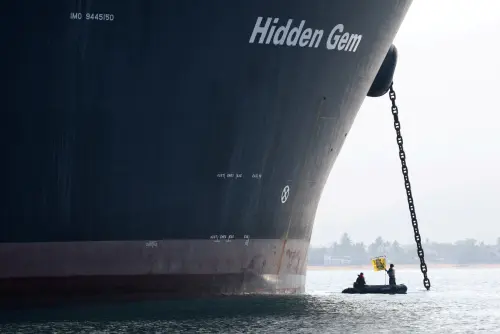The White House is considering an executive order that would expedite permitting for deep-sea mining in international waters, allowing mining companies to bypass a United Nations-backed review process, according to two sources familiar with the discussions.
If enacted, the order would represent the latest effort by President Trump to tap into international deposits of critical minerals such as nickel and copper, which are widely used in the economy. Trump recently invoked emergency powers to stimulate production.
The International Seabed Authority, established by the United Nations Convention on the Law of the Sea—which the U.S. has not ratified—has set forth guidelines for deep-sea mining in international waters. However, these guidelines remain informal due to ongoing disagreements regarding acceptable levels of environmental impact, including dust and noise.
Trump's anticipated order on deep-sea mining is expected to assert U.S. rights to extract minerals from the ocean floor, allowing miners to circumvent the ISA and seek permits through the U.S. Department of Commerce's National Oceanic and Atmospheric Administration's mining code. This could provide a clear permitting process, alleviating concerns that companies might operate without oversight.
Discussions are ongoing, and the plans may change before the order is signed, according to the sources. The White House has not commented on the matter.
Companies pursuing seabed mining argue that its environmental impact is significantly lower than that of terrestrial mining. However, numerous environmental groups contend that deep-sea mining should not proceed due to the potential risks to marine life.
Each country can authorize deep-sea mining within its territorial waters, approximately 200 nautical miles from shore. Countries such as the Cook Islands, Norway, and Japan are particularly interested in developing deep-sea mining industries.
The ISA council recently convened in Kingston, Jamaica, to review numerous amendments to a 256-page draft mining code for international waters, though the meeting concluded without resolution.
The ISA's stagnation prompted Vancouver-based The Metals Co, backed by Glencore, to apply for deep-sea mining permits last Thursday. The Metals Co stated that "commercial industry is not welcome at the ISA" and noted that the U.S. is "a regulator willing to engage with applicants and fairly consider their proposals."
This move symbolizes Trump's administration's retreat from global institutions perceived as conflicting with his "America First" economic policies. Additionally, it may heighten tensions with other nations vying for resources in international waters, which argue that permitting should be managed by a global entity that oversees access and resolves disputes.
Part of Trump's initiative to secure new sources of critical minerals aims to diminish China's significant influence over their production and processing, particularly as Beijing expands its use of these minerals in defense applications.
The specific staffing needs of NOAA for reviewing deep-sea mining permits remain unclear. Like other federal agencies, NOAA has faced budget reductions as part of Trump's efficiency drive. Deep-sea mining is also more technically complicated than land mining, primarily due to the distance from shore.
In a recent meeting with Jamaican Prime Minister Andrew Holness, U.S. Secretary of State Marco Rubio expressed Washington's interest in collaborating on energy-related projects, including "mining opportunities off the seabed."
In addition to The Metals Co, companies such as California-based Impossible Metals, Russia's JSC Yuzhmorgeologiya, Blue Minerals Jamaica, China Minmetals, and Kiribati's Marawa Research and Exploration are also exploring deep-sea mining opportunities.
